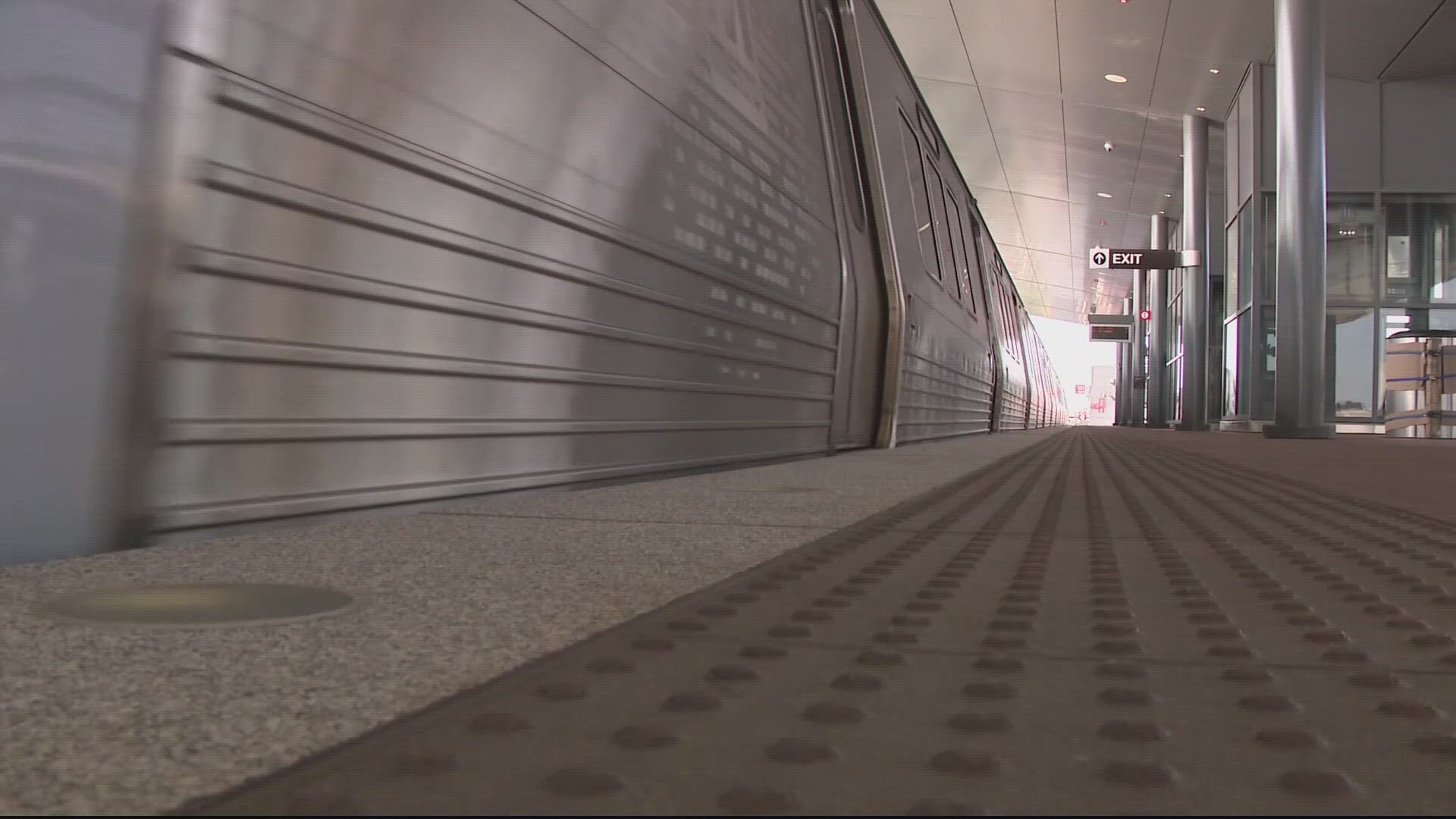WASHINGTON — Metro's General Manager Randy Clarke says the transit system could see service cuts as soon as spring if the agency is not able to close the $750 million dollar gap in next year's budget.
Clarke outlined the agency's financial woes and their impact Thursday at this year's "Capital Region Transportation Forum" organized by the Greater Washington Partnership alongside the Greater Washington Board of Trade. In attendance were D.C. Interim Director of Transportation Sharon Kershbaum, Maryland Transportation Secretary Paul Wiedefeld, and Virginia's Transportation Secretary W. Sheppard Miller III, with WUSA9's own Lesli Foster moderating.
"We need more people in the system," Clarke told the crowd.
Metro's fiscal year 2025 budget starts next July, but Clarke said the impacts on the system could come during peak tourism season for the District.
If Metro decides to make staff cuts, they're required to inform unions by January so we can see these impacts sooner rather than later.
Last month, Metro posted plans for how it could make up the financial shortfall. In a worst-case scenario, Metro says it could cut more than 60% of its service. Eliminating as many as 95 of its 134 bus routes and bumping wait times between trains from 6 to 12 minutes, up to 20 to 30 minutes.
Several Metro stations could be forced to close entirely and train service would end by 9:30 p.m., according to the transit agency. All while fares would go up.
Metro's Board is exploring three proposals to help the transit system. All of them require D.C., Maryland, and Virginia to adjust the funding they provide the system each year in an effort to avoid service cuts.
During the summit, Foster asked the DMV's top transportation officials what they are planning to do to help the struggling transit system that so many residents rely on. "I think what he is saying to all of you is, show me the money," she said.
None of the DMV's top transportation officials agreed to increase or got into specifics, at least for now.
"Like any household budget, you have to do it within a budget. We'll have to make some hard decisions and I know the system is, " former Metro General manager and now Maryland Transportation Secretary Paul Wiedefeld said.
Virginia's Transportation Secretary W. Sheppard Miller III hinted at an issue with Metro's fares. "Fares have remained relatively flat during over that period of time. People are paying less, there are less people paying, there's more service, and what do we end up with, you know what we end up with, a big hole, " he said.
Miller also shared his concern over fare evasion. Metro says the stolen fares cost them $40 million annually and it is one of customer's top complaints. The agency says fare evasion happens about 40,000 times every day within the transit system.
D.C.'s Interim Director of the Department of Transportation says the District is taking steps to increase Metro demand by making transit quicker. Kershbaum touted the 12 miles of priority bus lanes that she says will allow buses to travel quicker in congested areas.
"We have scooters and bike share readily available with bike infrastructure that makes them feel safe doing it, then suddenly the metro becomes an option," Kershbaum added.
Clarke was questioned about his stance on federal workers returning to work in person. He said his agency is not urging for the return, but they are in talks with the local and federal governments.
"The federal government base is fantastic for us because not only is it true people that live here, they all pay from a federal government a subsidized fair, which then really drives some fair revenue for us as well, " Clarke said.
On Dec. 14, Clarke is expected to present his 2024-2025 budget.
WATCH NEXT:

